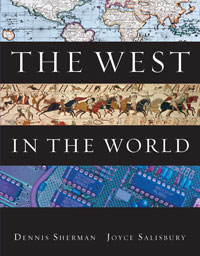1 A) was easily translated because it resembled Sumerian script. B) was translated when archeologists found the first tablets. C) appears to have been used for trade and accounting. D) demonstrates the connections between Egyptian artwork and Minoan culture. 2 A) the invasion of Troy by Egyptian armies. B) a shortage of copper. C) Syrian weakness. D) economic competition and increasing violence throughout the Mediterranean. 3 A) their disregard for other cultures. B) a sense of inferiority when Greeks compared themselves to others. C) the Trojan War. D) cultural stagnation. 4 A) resulted in Persian defeat, as foreseen by the priests. B) led to his conversion to the cult of Dionysus. C) demonstrates the role of human agency and interpretation in Greek religion. D) showed the fickle nature of the Greek gods. 5 A) it reinforced a gendered division of labor. B) it allowed women to escape domestic confinement. C) Dionysus favored women and granted divorce. D) it encouraged bisexual relations among women. 6 A) predict a solar eclipse. B) construct larger pyramids for the Egyptians. C) reinforce his theory of a primal element, water. D) prove that the universe was orderly and accessible. 7 A) cavalry charges B) infantry C) elite warriors on horseback D) hoplite phalanx 8 A) helped women escape from abusive husbands. B) loaned money to slaves so that they could buy their own freedom. C) loaned money to slaves so that they could purchase their own slaves. D) provided shelter to slaves running away from the mines. 9 A) served for a single year before entering the Areopagus. B) were prohibited from entering the Areopagus. C) served permanently, unless removed by ostracism. D) struggled against aristocratic rule. 10 A) dividing citizens into four groups. B) appealing to the newly wealthy. C) establishing a special court. D) creating a council that set the agenda for the Ecclesia. 11 A) the size of the auditorium. B) lot. C) the proportion of slaves, metics , and women. D) the quotas set by the Areopagus. 12 A) declared helots. B) turned over to the state for training. C) exposed. D) denied citizenship. 13 A) the pentathlon event. B) a foot race. C) chariot racing. D) theatrical competitions. 14 A) the Greek city-states immediately unified to confront the Persian threat. B) some northern city-states surrendered immediately to the Persians. C) the Athenians fled in their ships. D) Sparta again refused to aid their Athenian neighbors. 15 A) controlling unruly slaves. B) maintaining a balance between oligarchic and democratic forms of government. C) promoting the cultivation of olives and olive oil to build a strong economy. D) controlling the Aegean sea. 16 A) The optical illusion created by the architects defied the limits of human vision. B) The temple was dedicated to the patron goddess of the city, Athena. C) The only statues are of Athenian citizens. D) Statues of both gods and Athenians resemble one another, showing the common features of humans and divine figures. 17 A) the distance between the two cities. B) the dissension among other city-states supporting Athenian dominance. C) the Spartans' strength on land versus the Athenians' strength at sea. D) the decline in democratic ideals as seen by the Athenian treatment of Melos. 18 A) his teaching methods. B) criticizing Athenian society. C) attempting suicide. D) impiety and corrupting the young. 19 Republic , society would be governed byA) a democratic assembly that included all free males. B) an oligarchic assembly. C) a philosopher-king. D) a combination of democratic and oligarchic institutions. 20 A) political problems. B) the body, sex, and base inclinations. C) religious hypocrisy. D) conflicts between the city-states. 21 A) increased competition among the city-states. B) a new coalition of city-states. C) Spartan dominance over most of the Greek city-states. D) renewed efforts by the Athenians to recover control of the region. 22 A) The Greek peninsula is surrounded by the Aegean Sea, the Ionian Sea, the Mediterranean Sea and Macedonia. B) Fertile plains characterize the interior of the Greek peninsula. C) Large rivers flowing south provide an efficient means of transportation and communication. D) Few islands exist in the waters surrounding the Greek peninsula. 23 A) The Greek gods lived on Delphi. B) Greek gods were virtuous and all-powerful. C) Greek religious rituals tended to be somber, pessimistic events. D) Greeks believed that the will of the gods could be known. 24 A) Full governing power rested in the Ecclesia. B) Twenty percent of the Athenian population were members of the Ecclesia. C) The Council of 500 was dominated by the wealthiest citizens. D) The Council of 500 set the legislative agenda for the Ecclesia.





